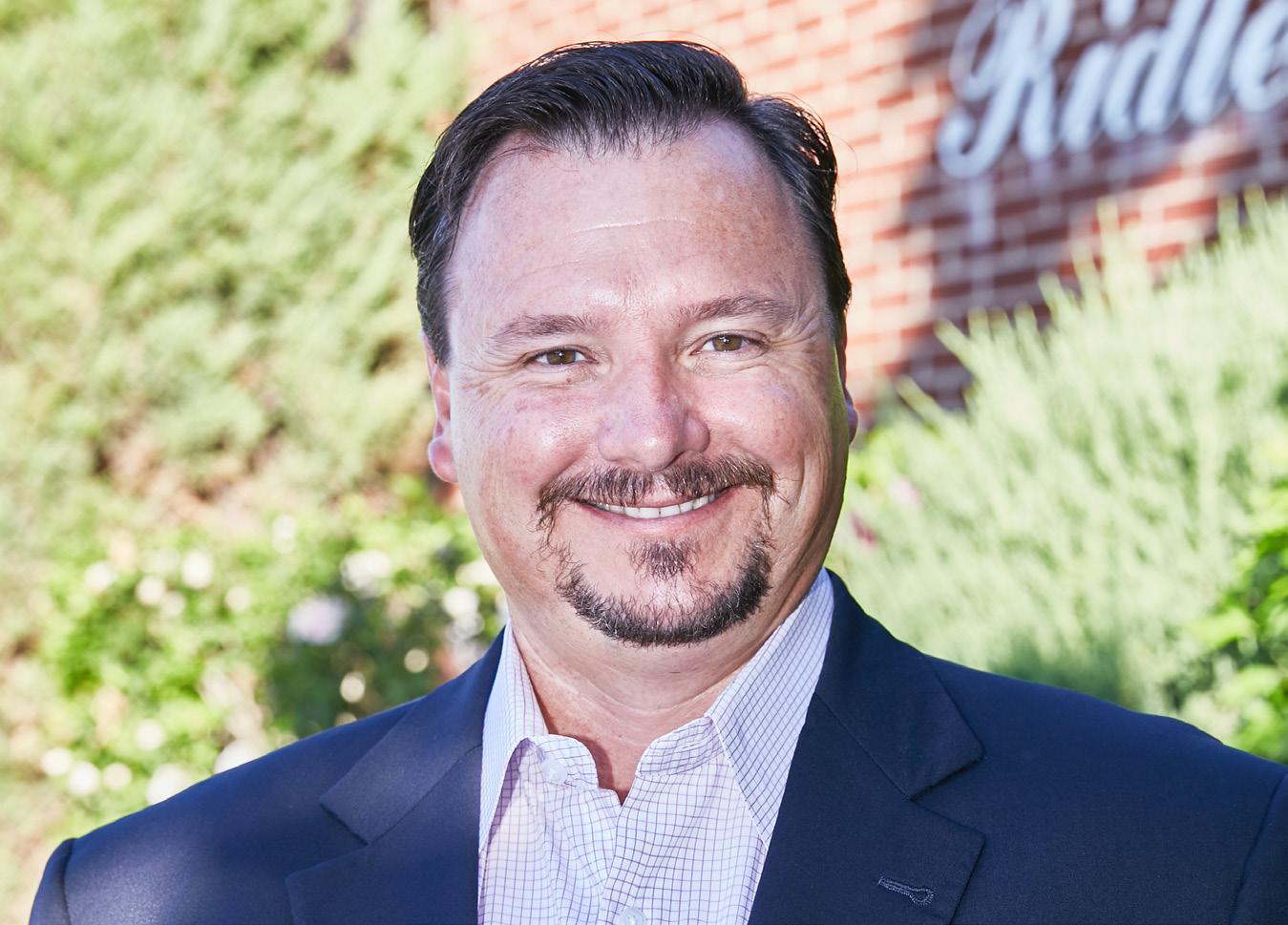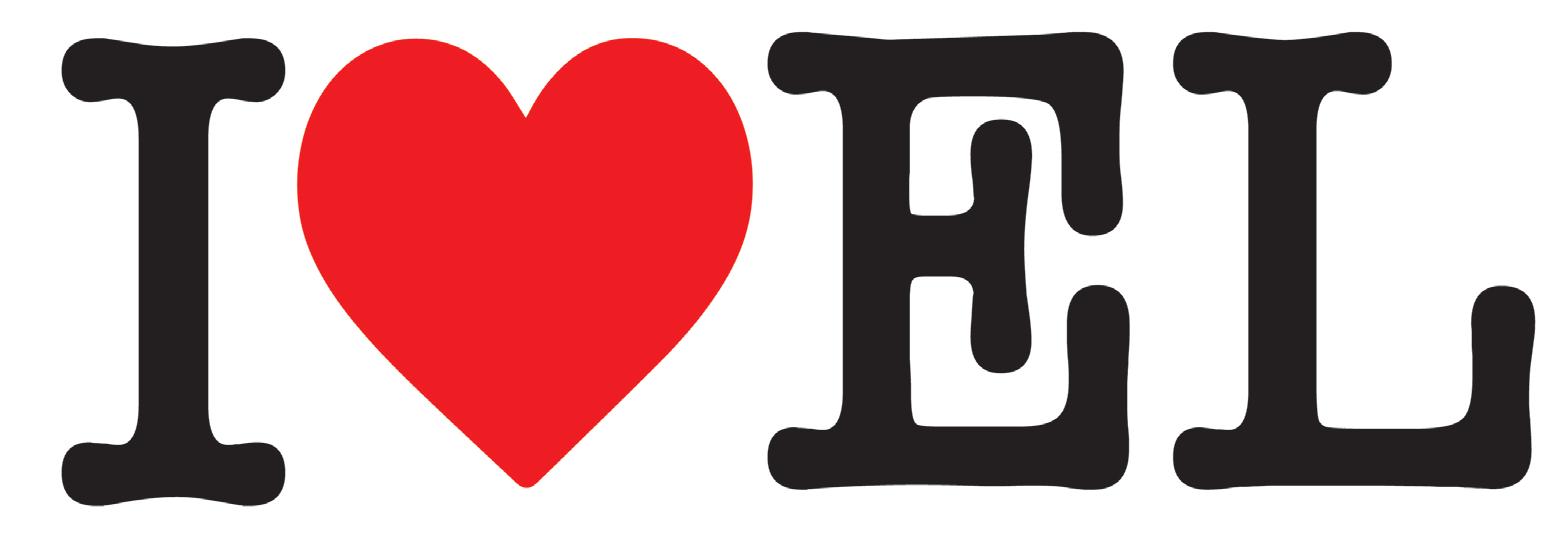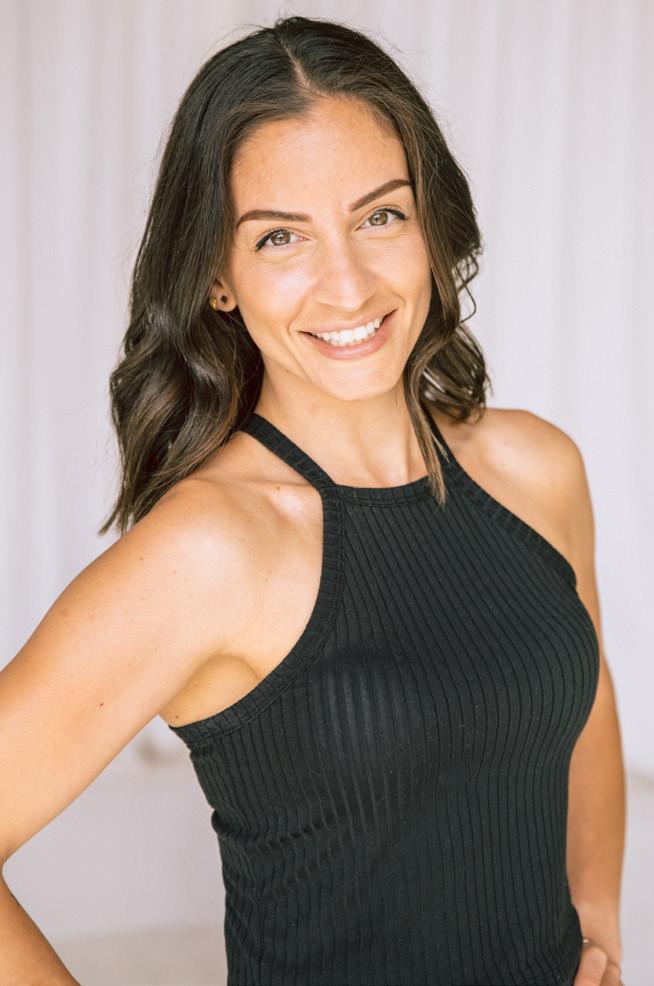
10 minute read
LIFE’S UNDERTAKINGS
I have been known to snort, spray food or drinks out of my nose when ridiculousness shows up unexpectedly. Nothing shifts a mood more quickly than a belly laugh. Even the tightest hug can’t top laughter’s medicinal powers.
But every clown has a season.
Advertisement
There are times when my popularity plummets at home and at the funeral home. Happily, those times are rare. For the most part.
My tanking in the polls always correlates with how many practical jokes I am playing on my wife, six kids and staff.
I am a sucker for jumping out of closets and inspiring screams. I’ve been known to leave strange anonymous phone messages.
Yes, sometimes I’m laughing harder – way harder – than the person I’ve shocked, stunned or startled with my shenanigans.
You simply can’t feel sad, nervous, angry or afraid when you’re laughing, whether you’re giggling alone or belly-laughing with others.
For people like me who see death up close every single day, you need to laugh. No, not at Death and surely not at the dead and grieving. (We’re not ghouls, people!)
The reason I choose to be the “grin reaper” among the people dearest and closest to me is because I realize that as we embrace the reality of death professionally and personally, we’re rejuvenated and healed by laughter; funeral directors need regular reminding that there’s great joy in being alive.
In fact, I believe “normal folk” such as yourself benefit from life-laughter reminders, too, especially these days. Yes, the world can look like it’s falling apart, descending into darkness, burning down, splitting wide open, going viral.
But just like tears can signify joy or pain, life is fuelled by more than what’s featured on the daily news or from the political campaign trail.
So often people expect me to have a doom-andgloom attitude and outlook on life. Why? Because I’m a funeral director.
Supposedly I see the “worst of the worst.”
I don’t.
I see the very best in people. And I define “best” as whenever men, women and children gather and celebrate life while simultaneously mourning its passing.
With 30 years of undertaking under my everwidening belt, I regularly watch the gap between birth, life and death exquisitely bridged.
How? By the telling of stories.
Some of the kindest, most generous, strongest, fierce and comical people I have ever heard about are souls I have never met – and will never meet.
They’re the dead who pass through our funeral home but their legacy remains in the stories their loved ones share and cherish.
Every day I am blessed, as are my staff, to hear the stories of people’s lives. Their triumphs. Headaches. Quirks. Heartbreaks.
As a funeral director, I don’t only listen to these stories from the pulpit or at the centre of a room to a large crowd. (In the olden days, of course.)
I am blessed to hear stories told to me privately, heartbreakingly, sometimes ashamedly.
One of the reasons I let go of petty slights easily is that I know first-hand that people filled with regret and remorse – usually about their acts of anger and non-forgiveness – are tortured souls who tell the saddest stories about the people they’ve loved and lost.
Once someone is dead, all bets are off. There are no more chances to be kinder, wiser, more patient.
But stories, confessed privately or shared publicly, are magical in their ability to transform wounds into wisdom. To convert regret into redemption.
Eulogies are as old as the hills because we’re a species hardwired to mourn and to grieve.
Speaking the last public words about someone who’s died is both a blessing and a burden.
If there was ever a “favourite” part of a funeral, most people, including funeral directors, would agree that eulogies are the most powerful and sacred, and sometimes the funniest, part of the service. (Funeral sandwiches are a distant second, as they should be.)
Whether we’re speaking at a funeral or listening to grieving storytellers, stories bring everything, and everyone, back to life.
The shadow cast by the beloved’s death is held off for just a bit longer. The “new normal” has not yet breached the gate.
BRAD JONES
Owner, Ridley Funeral Home
Stories about dead people keep us in sunshine a touch longer before the new narrative, the story of our own lives minus those we love, launches us into a dark and dismal shadowland that’s as painful as it is ever-changing.
My mother died 23 years ago and my father in 2019. I will tell you without a shadow of a doubt that my love for them has never ended, has never stopped flowing in their direction.
Family does not end when death comes to your door. My parents remain a part of our family because they taught me and my sister the redemptive power of storytelling.
The majority of my children never met their grandmother yet they know both my parents and they know and, more importantly, they feel that they’re connected to a larger although invisible family.
There are few words that comfort a broken heart. But as a funeral director and as a son I do know that stories offer light and comfort when we’re missing our beloved so much we can barely take a breath, stand up straight or fake a smile.
If there were ever a vaccine to protect us from grief, a shot of story would be inside that jab, not to the arm but into the tenderness of a broken heart.
There’s a poem hanging in my office that’s popular with funeral directors. Although written in the early 20th century, “The Undertaker” poem expresses a timeless sentiment about people like me, called to care for the living by taking care of the dead:
“Cold-Blooded,” you’ll hear them say/Trained to the shock and chill of death/With a heart that’s cold and grey.” (Read the entire poem on page 30)
How can people so intimately involved with our humanity and our demise balance their own humanity and faith? In other words, how do I do what I do? – a question I am asked constantly.
And the answer is sweetly simple, like most big truths are: I’m a funeral director because I believe in families. I believe in eternal love. And I know that we shape our lives, and we shape our legacy, by the stories we tell and leave behind.
Brad Jones is president of locally-owned, commission-free Ridley Funeral Home (3080 Lakeshore Boulevard West) in Etobicoke. Brad’s top five family traditions are eating dinner together, talking before and after a meal, taking family vacations, cutting down Christmas trees (plural!), and telling stories about the past, present and hopes for the future. You’re always welcome to reach out to Brad by calling 416-259-3705 or emailing him at bradjones@ridleyfuneralhome.com
JONATHAN NHAN

Curate and Upgrade www.curateandupgrade.ca
Can you remember the last time you had a conversation with someone that turned out to be a complete misunderstanding? It was almost as if you were having two different conversations. It’s funny because it happens more often than we think, and it illustrates how we often put our own meanings onto the words of other people. Think about thoughts and ideas that run through your head. How accurately do you think you can describe those thoughts into words? Simple descriptions about concrete objects may be easy. How about describing bigger concepts, like friendship, or love? These ideas may not be easily described, but we may turn to metaphors to more easily express our ideas.
Stories have themes. Stories can be used to express things that a simple phrase cannot express. We are naturally hardwired to express our thoughts and feelings through metaphor. In the book Clean Language by Judy Rees, she details the work of David Grove and describes a set of questions used to explore the metaphors of other people and elicit the meanings of those metaphors, without putting our own meanings onto the words of others.
We enter into every moment of communication with our own perceptual filters and this can colour our understanding of another person. This can lead to many misunderstandings. We often hear the words of others, but place our own meaning onto those words. If we can take a moment to understand that language is an imperfect way of expressing our thoughts and feelings, we can begin to understand that there is room within listening to another person so that their meaning may not be the meaning you first assign to their words.
Having an understanding of this can help you broaden your perspectives in your communication with others. When you begin to look at things from a perspective outside your own, it can help to grow understanding of different viewpoints. This applies in just the same way to the stories that we tell ourselves. We often have predefined narratives for ourselves. We make up stories and repeat them to ourselves like they’re facts, when in actual fact, we can change the story at any time. Consider the collection of stories that you tell yourself. Which stories do you like? Which stories do you want to change?
One major story in all of our lives is the story of our worklife. So often, we define ourselves by the jobs we have or the career path that we find ourselves on. This story becomes a major part of our identity, to the point where changing it seems like an impossibility. And when someone does change their story with respect to their career, it can seem like a shock. I recently made a change in jobs and while it was a shock to many people, I think the shock of it all is still landing for myself. Setting one book down and opening up a brand new story seems almost surreal in the early stages. It’s like starting a new book, and not knowing how it’s going to turn out. You might even ask yourself, “Why are you starting a brand new book when you don’t know how it’s going to end? You could just keep reading the same book that you’re familiar with”.
Sometimes the book you’re reading gets boring. Sometimes you don’t realize how bad the book you’re reading now is until you start reading a new book and find out how much better stories can be. If you look back, you might realize how I’ve used metaphors about stories and books to describe a fraction of the feelings surrounding leaving one job to look for a new career. Consider the stories you are telling yourself. Be curious about how you can change the story.
You can find Jon at thecuratorium.ca/learnmore
Jonathan Nhan Co-Founder, Curate and Upgrade
Jon is a pharmacist, hypnotist, and Certified Diabetes Educator. He is passionate about making a tangible, positive impact in the world and has seen the power that changing mindset can have. Jon works with people like you, to find the perfect blueprint for healthy in your life and make that change effortless.
LIZ MARTINO-DURBANO, M.Ed.
Teacher, Certified Personal Trainer, Fitness Instructor & Wellness Guide www.align-fitness.ca
And just like that, here we are in September! Over these last months, I hope that you were able to enjoy time with family, making memories that remain vivid in your heart and in your mind. The summer months tend to be those unique times of the year where being active comes naturally. As the days become shorter, we tend to spend more time indoors and less time being active.
The word family is representative of togetherness and support. Within a family, there are unique individuals, each on their unique life journey. When one is down (or less motivated) the other brings them up. Last month, I spoke about how staying active can help with youth mental health (and our own), and how doing activities together, as a family is a great place to start. It is important to listen to each other and understand each other’s likes and dislikes. So when putting together a Family Commitment to Being Active Action Plan, consider each other’s wants and goals. Take turns, allowing one family member to choose the (active) activity for that day and complete it together.
Are you looking for some fun activities to do with your family? Align Soul Fitness offers Private Family Training sessions - custom designed to cater to your family. You can pair up with another family, too! During the session, I will guide you through fun challenges that will have you and your loved ones laughing (and sweating!) I hope to inspire you to continue these challenges on your own (or join me again!)
You can reach out to me at info@align-fitness.ca or visit www.align-fitness.ca for more information .
Liz Martino-Durbano, M.Ed. Teacher, Certified Personal Trainer, Fitness Instructor & Wellness Guide Founder of Align Fitness 647.224.9559

In Support of Youth Mental Health Awareness









